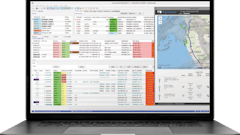
In a business world that evolves at a breakneck pace, the modern supply chain faces an array of challenges that demand flexibility and resilience. From unforeseeable disruptions to the constant ebb and flow of customer demands, companies must innovate to uphold resilience and agility. In this intricate dance, Artificial Intelligence (AI) emerges as a transformative force, remolding the very fabric of supply chain operations, and equipping businesses with the toolkit needed to traverse uncertainties while optimizing processes. As the curtains rise on a future where 9 out of 10 leading businesses are investing in AI-technologies, the mandate to seamlessly incorporate AI throughout the supply chain becomes inescapable, promising considerable advantages and securing enduring triumph.
The role of sophisticated AI technologies spans diverse applications within the realm of supply chain management. Among its stellar applications, AI stands tall in the realm of demand forecasting. By dissecting historical data, scrutinizing market trends, and assimilating an array of external variables, AI algorithms wield predictive prowess to discern demand patterns. This strategic edge endows companies with the power to meticulously calibrate inventory levels, deftly pare costs and elevate customer satisfaction.
Yet, the sphere of AI influence extends well beyond predictive insights, permeating into the sphere of intelligent automation—an essential pillar in erecting an agile supply chain. The automation of repetitive and time-consuming tasks—ranging from data entry and order processing to the orchestration of inventory nuances—orchestrates a symphony of streamlined operations, amplifies efficiency and curtails the specter of human fallibility.
Fostering Agility and Flexibility through AI
AI serves as the catalyst that fuels supply chains with the nimbleness and adaptability required to react elegantly amidst the capricious winds of evolving customer preferences, market dynamics, and emerging trends. A particularly resonant example of AI's prowess lies in the realm of inventory management. By scrutinizing historical sales data, deciphering market trends, and analyzing pertinent variables, AI algorithms optimize inventory levels. This dynamic optimization ensures companies possess the right products, in precise quantities, exactly when needed, mitigating risks of surplus or shortages and amplifying operational efficacy.
Furthermore, AI's influence extends to streamlining logistics and orchestrating dynamic route planning. By integrating considerations such as traffic conditions, weather forecasts, and real-time demand fluctuations, AI algorithms optimize transportation routes, curtail carbon emissions and expedite delivery times. The integration of AI's capabilities empowers businesses to seamlessly pivot in response to evolving customer expectations, navigate market fluctuations, and stay ahead of emerging trends, ultimately securing a distinct competitive edge. Leveraging AI's power, companies can catalyze a transformative shift in operations, attaining operational excellence within the fast-paced logistics realm.
Cultivating Resilience in Modern Supply Chains
In every industry, the landscape is in a perpetual state of flux, necessitating agile supply chains that can adeptly adapt. Even seemingly innocuous events—such as equipment glitches, logistical quandaries or demand oscillations—bear the potential to cast shadows over supply chain performance. Successfully navigating this complexity requires a margin for error too thin for reactive decision-making, which can incur added costs and prolong external crises. Enterprises today recognize that resilience is the bedrock of success in these dynamic markets. Supply chain resilience entails the ability to swiftly rebound from challenges and seamlessly respond to unforeseen supply or demand changes without compromising quality.
The crux of resilience lies in achieving comprehensive and verifiable visibility – a capability many companies currently lack. In a landscape characterized by intricate supply chain systems, the need for real-time data access, near-future projections, and granular tracking of each component down to a pallet or item is of the utmost importance. Enhanced visibility carries implications beyond operational efficiency; it can also bolster employee safety by pinpointing risk patterns that disrupt workflows and potentially put worker safety at risk.
AI-driven technologies serve as pivotal instruments in attaining elevated visibility. By proactively identifying risks, discerning patterns, and facilitating data-informed decisions, these technologies enable businesses to deftly manage disruptions. Employing machine learning algorithms and advanced analytics, companies bolster their ability to respond nimbly to unforeseen events, minimize downtimes, sustain consistent supply chain operations and improve sustainability.
Critical Considerations in AI Adoption
The pursuit of supply chain resilience is a critical endeavor for modern businesses seeking to flourish in today's global marketplace, and AI stands as an invaluable ally in this pursuit. However, elevating supply chain visibility is the first step to getting valuable outcomes with AI, as a bedrock of timely and verifiable proves critical to empower decision AI models to offer accurate predictions and forecasts.
Real-time insights derived from high-quality visibility data guide data-driven decisions, risk mitigation, and operational streamlining. Achieving this level of visibility necessitates concerted efforts towards standardization, data integration, technology adoption, collaborative initiatives, risk management and talent cultivation.
Enterprises that prioritize investment in bolstering supply chain visibility position themselves to leverage the maximum ROI from AI adoption to deftly navigate market fluctuations, secure a competitive advantage, and deliver substantial value to their clientele. It empowers businesses to pivot swiftly in times of uncertainty, capitalizing on AI's innate agility.
Continuous advancements in artificial intelligence are leading to exciting changes. The AI industry is constantly pushing the boundaries of innovation. New algorithms and models such as generative AI, predictive AI and decision, AI are continuously being developed, leading to groundbreaking solutions that disrupt traditional industries. Data-driven decisions on an unprecedented scale promise heightened efficiency and growth. The evolving collaboration between humans and AI embodies harmonious synergy, enhancing productivity and ingenuity. Meanwhile, AI's ethical focus and societal impact amplify the field's virtuous potential.


















